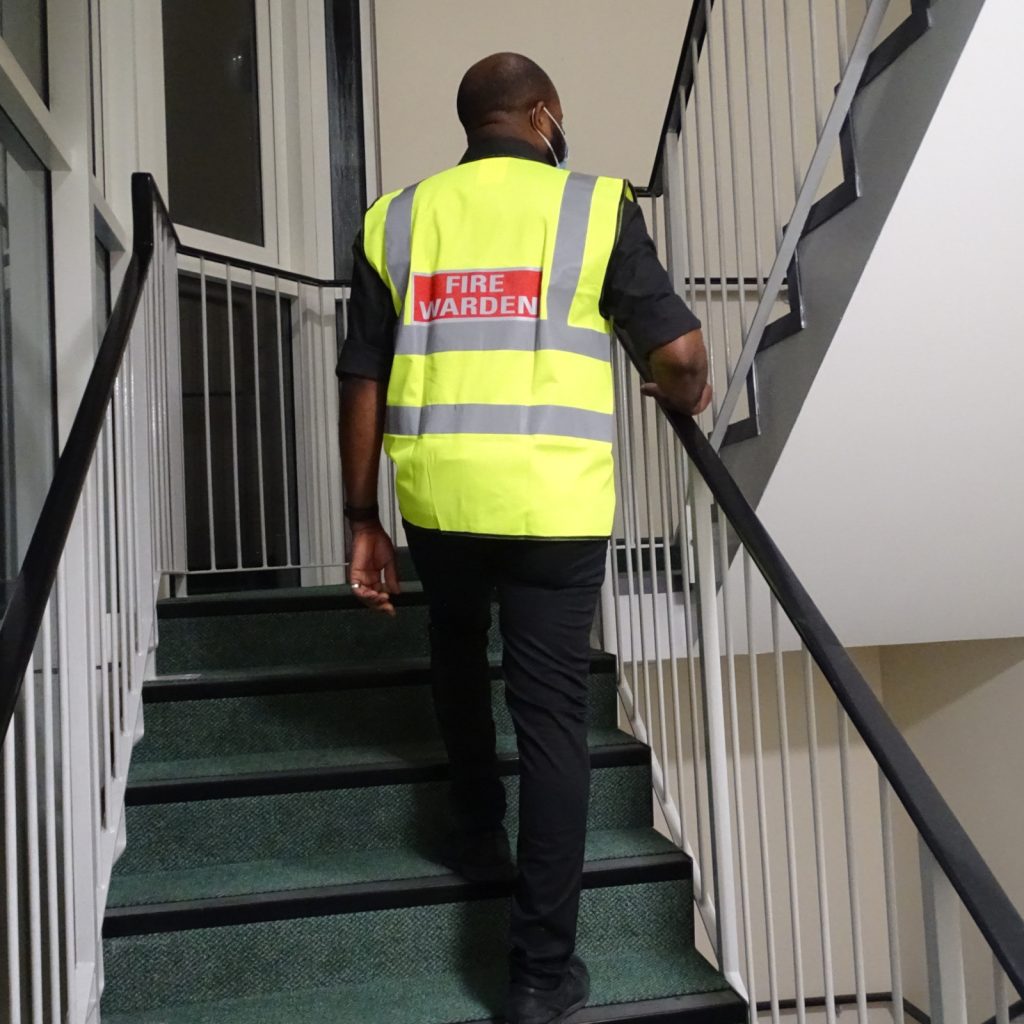Fire alarms or waking watch – Which is the best fire safety option?Fire alarms or waking watch – Which is the best fire safety option?

Since the horrific events of the Grenfell Tower fire in 2017, there has been a major rise in scrutiny over the fire safety measures in place in high-rise residential buildings across the UK.
Many existing buildings have the same dangerous cladding in place as the Grenfell tower, and with no sign of funding to replace this, it has become essential to put temporary measures in place to reduce the risk of another tragic event.
The biggest shift in policy has been a change in the advice given to those in affected high-rise properties in the case of a fire, from a stay put approach to simultaneous evacuation.
As this cladding allows fire to spread extremely quickly it has been deemed unsafe to remain in your apartment in case of a fire meaning that swift evacuation is now the go to for apartment blocks in the UK.
In order to facilitate a swift evacuation, potential fires must be quickly identified, and residents informed.
For this reason, it is now a legal requirement for buildings identified as high risk to either install a common fire alarm system or have a waking watch service in place, until the issue has been permanently resolved.
Waking Watch
Waking watch involves trained Waking Watch Fire Marshals being located on site 24/7 to assist in the identification of fires and the evacuation of a building.
Some of the key responsibilities performed by a waking watch officer include:
- Conducting regular patrols carefully examining each floor of a building, and the exterior, for any signs of a fire.
- Ensuring that all fire escape routes are accessible and free of trip hazards.
- Alerting residents in the case of a fire or fire scare
- Assisting in the evacuation of the building
- Contacting the emergency services and liaising with them once they arrive.
They were first introduced as a temporary measure by the National Fire Chiefs Council (NFCC) following Grenfell to protect high rise properties until cladding was replaced but a frustrating lack of progress has led to residents stuck paying for this costly service for several years.
The main aim of this role is to ensure that residents have sufficient warning in the case of a fire and to allow for the implementation of a simultaneous evacuation, the protocol that replaced previous ‘stay put’ advice for those living in high-rise properties with condemned cladding.
However, waking watch services, whilst effective, are costly and the same role can be performed more effectively, and at much less expense to the leaseholder, by a proper common alarm system.
Why is an alarm system the best option?
There are many reasons why alarm systems are preferable to waking watch as temporary fire safety measures and that the UK Government has introduced a £30 million fund to help facilitate the installation of such systems.
The benefits of alarms over waking watch services include:
Early detection
No matter how experienced a fire warden is, there are some signs of a fire that cannot be seen by the human eye.
A fire alarm, however, will detect a fire at the earliest possible stage, allowing for fast evacuation and containment.
Simultaneous evacuation
Even if a waking watch officer does identify a fire as quickly as would be possible via fire alarm, they still need to manually notify all residents of the situation using a whistle or similar.
This leads to a staggered evacuation that will likely see all residents vacate the building much slower than would be possible using a common fire alarm.
With a wireless fire alarm system, with linked sensors installed in every window in each apartment with a wall covered in condemned cladding, should a fire break out every single alarm in the system will be triggered at once, allowing for a simultaneous evacuation.
Easy Installation
As a temporary measure, it is recommended that you install a wireless fire alarm, meaning that installation will be fast and easy with no wires or the need to access wall cavities, etc.
This means there will be very little disruption for residents and your alarm will be up and running in no time at all.
Save Money
The cost of hiring just a single fire marshal to patrol your property is extremely high and installing an alarm system will reduce the monthly costs for all residents in the building.
Apart from the initial installation, there is very little expense or ongoing maintenance required when it comes to an alarm system, and on average you will save 82% by making the switch.
Automatically alert the fire brigade
Some monitored fire alarm systems will automatically alert the fire service as soon as the alarm is activated, allowing for a swift response and hopefully allowing any potential fire to be contained.
Whilst a waking watch officer would perform this role, there would likely be a delay whilst they alerted residents making alarms a much better real-time option.